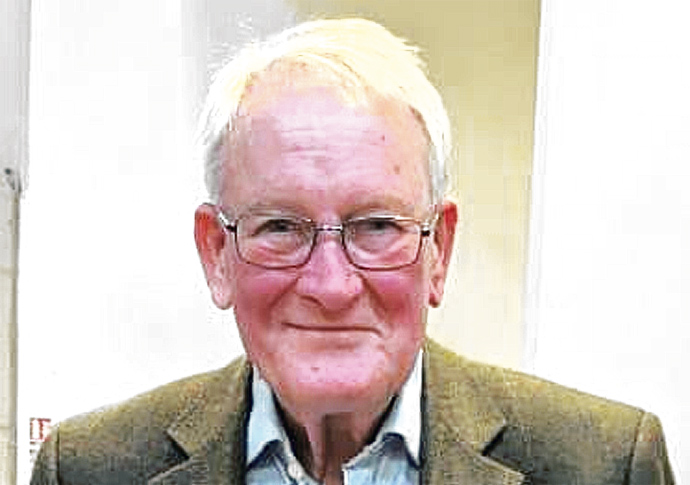
Samuel Taylor Coleridge
HISTORY is littered with people who are not who they claimed to be. Fraudsters, identity stealers, precursors to modern-day online scammers.
Some make headlines. The MP John Stonehouse is one. In an attempt to fake his own death, he left his clothes on a beach in 1974 then took a new identity in Australia. Others get played out on the screen. John and Anne Darwin, for instance, the 2002 couple who in an insurance scam shammed the husband’s death, pretending he had drowned after canoeing out to sea, then ran off to attempt new lives in Panama.
A current identity story that began on social media sites and which intermittently spills into mainstream news is Charles Dorante-Day. He claims to be the love child of King Charles and Camilla. A craggy looking, 56-year-old Australian engineer, his adoptive grandparents worked for the Queen and Prince Philip. He is ridiculed, yet who knows?
Photographs of him as a boy do bear resemblance to Charles and, as a young man, to Camilla. He is ready to take Charles to court to demand a DNA test.
A few months ago, I witnessed an identity claim at a performance of Vengeance, a play chronicling the fall of Oscar Wilde. I was there as a theatre critic for the Oscar Wilde Society. In the bar, an audience member noisily stated he was a distant cousin of Constance Wilde, Oscar’s wife. His claim was taken seriously.
Through him we were all suddenly part of the Wilde family, stepping across time to the original story. Actors encircled him, held up phones, plied him with questions. Yet the rumours later were that he was a fake. The whole thing an elaborate ruse for attention.
I have often thought of that man, surrounded by people in the bar, under their gaze grown quiet, head bowed, flushed like a child at a party who is overcome by presents and good wishes. Is he Constance’s cousin? Perhaps. Or perhaps he just wants love and, using his story, has found a way of attracting it, however fleetingly.
Perhaps the alleged royal love-child simply craves love and attention, too.
Recently, I had another identity claim experience.

Gerard Coleridge
This year being the 250th anniversary of the birth of Samuel Taylor Coleridge, I had taken my A-level students to Highgate, where Coleridge lived, for a reading of The Rime of the Ancient Mariner in St Michael’s Church.
The second pew gave us a good view not only of the helm placed in front of the altar but of the towering, stained glass window directly above. A blue afternoon gleamed through the intricacies of red, gold, and white.
As we waited, I talked to the students about the poem. A smiling, white-haired woman in front turned around to ask if I was part of the production team.
I hesitated. I glimpsed another me in another life, organising poetry readings in lovely churches. I opened my mouth to say yes. Just for the fun of it. A different, transient identity. What would be the harm?
The woman looked at me quizzically. I changed my mind. I was a teacher and these were my students.
Next to the woman, a white-haired man sat with his back to us, frowning as he bent over a phone. The woman nodded at him. That was her husband. He was the great-great-great-grandson of Coleridge. Later, I was able to verify that this identity claim was true.
He, however, was either not listening or not interested. He rapped his fingers on the phone screen. The woman watched him.
“He can never get it to work.”
Up at the altar, sound effects started. A great wind rolled on the waves, the ship creaked. We fell silent. Only the actors’ voices remained, echoing through that cavernous, holy space.
Mingling with the congregation an hour later, I asked the woman if her husband would talk to us.
“Oh! He’d be absolutely delighted! Gerard! Come here! These people want to meet you! He was hateful to his wife,” she added. “I suppose you know? Samuel Taylor, I mean.”
I nodded. Dickens, Tolstoy, Picasso, Hemingway; which of them wasn’t?
“Are you a poet too?” I clumsily asked the man now standing in front of me.
“Sea captain!”
Was he joking? A man whose great-great-great-grandfather had chronicled the metaphysical journey of a tormented mariner turns out to be a sea captain?
“Forty years in the Merchant Navy.”
Students approached with phones. And like the Wilde claimant, under the cameras he visibly blossomed. Frowns were replaced by a beaming, weather-beaten face.
I asked what it was like being the great-great-great-grandson of Coleridge.
“I can’t really say I was impacted by him. I’m technical rather than literary.”
Did he own any of his great- great-great-grandfather’s belongings?
“Only a few pictures. And some of his hair. Sorry if this is rather boring.”
As is perhaps befitting of an old sea captain, Gerard was a man of few words.
Yet meeting our own, decidedly un-tormented Ancient Mariner brought the past close. Stand him, and five of his ancestors behind him in a line, and we are back to the poet himself.
• Emma Goldman is an English teacher in Islington